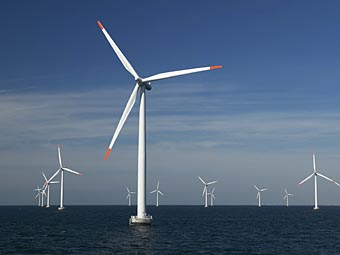As an engineer, UCSC's Ali Shakouri seeks technical solutions, but he says that not even the most sophisticated new technologies can solve our energy problems without major changes in the ways we use energy.
"These issues are strongly rooted in how people live," said Shakouri. "We need to make societal changes, and that's not something engineers and scientists typically know very much about."
To help bridge that gap, Shakouri launched his interdisciplinary Renewable Energy course in 2006. The course brought faculty and students from engineering, sociology, and other fields together to explore energy issues.
Shakouri then teamed up with four other faculty members-Ronnie Lipschutz (politics); Stephen Gliessman (environmental studies); Melanie Dupuis (sociology); and Ben Crow (sociology)-to offer Sustainability Engineering and Practice in 2007 and 2008. Together, they help students take a broader view of sustainability issues like energy, water, food, agroecology, transportation, and societal change.
"Social science students learn more about the science and the quantitative approaches they need to understand the delicate relationships between our energy use and its environmental impact; and engineering students get a broader view of how technologies might affect society," said Shakouri. Lipschutz and Shakouri recently received two grants from the National Science Foundation to expand a curriculum for a course in sustainability engineering and ecological design.
In summer 2008, Shakouri launched Lolland California Renewable Energies, an international educational exchange program (read more). Twenty students from three UC campuses and two Danish universities learned about the implementation of sustainable energy technologies in Lolland, Denmark, including state-of-the-art offshore wind farms; in summer 2009 the program will be held in California.
-By Vicki Bolam



